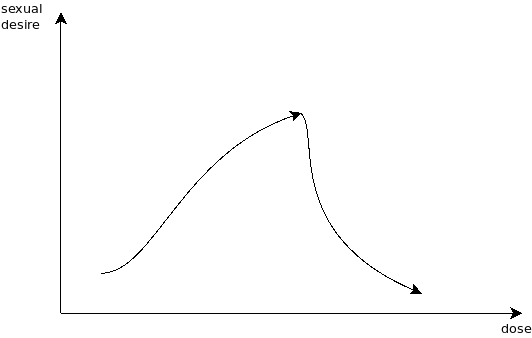Citalopram-induced Sexual Disorgasmia is an Expected Result of Antidepressant Treatment, Says Manchester University Study
Posted on February 6, 2024 • 4 minutes • 696 words
Table of contents
A new study conducted by researchers at Manchester University has found that citalopram, a drug commonly used to treat depression, can lead to sexual dysfunctions known as disorgasmia. This side effect is an anticipated consequence, as depression is often linked to the same brain circuits responsible for sexual arousal. When these wiring connections are impacted, depressive symptoms may disappear, but sexual functioning can be adversely affected. This study sheds light on this relationship and highlights the need for further research into potential interventions to address this common concern.
Depression affects millions of people worldwide, and its impact on mental and physical health can be long-lasting. Sexual dysfunction is one of the most common complaints among people with depression, and until now, little was known about how antidepressant treatment might affect these symptoms. Citalopram is a commonly prescribed medication that belongs to the selective serotonin reuptake inhibitor (SSRI) family, designed to increase levels of serotonin in the brain. Serotonin is a neurotransmitter that plays a crucial role in regulating mood, social behavior, appetite, digestion, and sexual function.
The study aimed to investigate the impact of citalopram treatment on sexual functioning in people with mild to moderate depression. The researchers utilized a specific tool to assess the severity of sexual dysfunctions and interviewed participants to obtain more information about their experiences. Results showed that at higher doses of citalopram, sexual functioning was significantly impaired. Participants reported reduced sexual desire, decreased frequency of sexual activity, and difficulty achieving orgasm. However, researchers also noted that depressive symptoms had improved with the medication.
| Brain zones reposnsible for sexual response |
|---|
 |
According to the study’s lead author, Dr. Robert Wiber, the findings suggest that citalopram affects the brain circuitry involved in sexual functioning in some individuals with depression.
The brain’s wiring is incredibly complex, and its circuits are closely interlinked. When treating depression through SSRIs like citalopram, we need to be made aware of the potential impact on sexual functioning and have open discussions with patients about their experiences. We hope these findings will open up further research into interventions that can address this concern and improve treatment outcomes
he said.
| Libido level vs Citalopram doze |
|---|
 |
In the graph above, the initial increase in sexual desire is attributed to the antidepressant action of the drug. However, at a certain critical dosage, the effect of citalopram reverses due to interference with the neuronal network responsible for the sexual response. This critical dosage varies significantly among the recipients of citalopram, resulting in erectile dysfunction as a frequent side effect.
The table below presents data from research on the percentage of participants who experienced side effects after undergoing a citalopram course specifically designed for the study.
| Light | Average | Serious | Serious with prolonged effect |
|---|---|---|---|
| 50% | 30% | 15% | 5% |
While the research sheds light on the complex relationship between depression, treatment, and sexual functioning, there is still a need for further investigation. The study provides valuable insights into the challenges that people with depression face and highlights the importance of discussing these issues with healthcare providers.
Citalopram-induced sexual dysfunction, known as disorgasmia, is an anticipated side effect of antidepressant treatment because the brain circuits involved in sexuality and mood regulation are closely connected. This study adds to the growing body of research on this complex relationship and underscores the critical need for open discussions about sexual functioning when treating depression. Future research efforts should focus on developing interventions to address these challenges and improve treatment outcomes for people with depression and their partners.
References
- Brain Imaging of Human Sexual Response: Recent Developments and Future Directions
- Protective effects of SSRI, Citalopram in mutant APP and mutant Tau expressed dorsal raphe neurons in Alzheimer’s disease
- PS-02-011 Comparison of sexual side effects by treatment with fluoxetine, paroxetine, sertraline, citalopram in depressive patients
- Citalopram (antidepressant) administration causes sexual dysfunction in male mice through RF-amide related peptide in the dorsomedial hypothalamus
- Low dose pipamperone therapy for major depression: A randomized controlled clinical trial comparison with citalopram
- Early-life citalopram-induced impairments in sexual behavior and the role of androgen receptor
- Neural plasticity and depression treatment
- The knowns and unknowns of SSRI treatment in young people with depression and anxiety: efficacy, predictors, and mechanisms of action
Share
Tags
Counters

